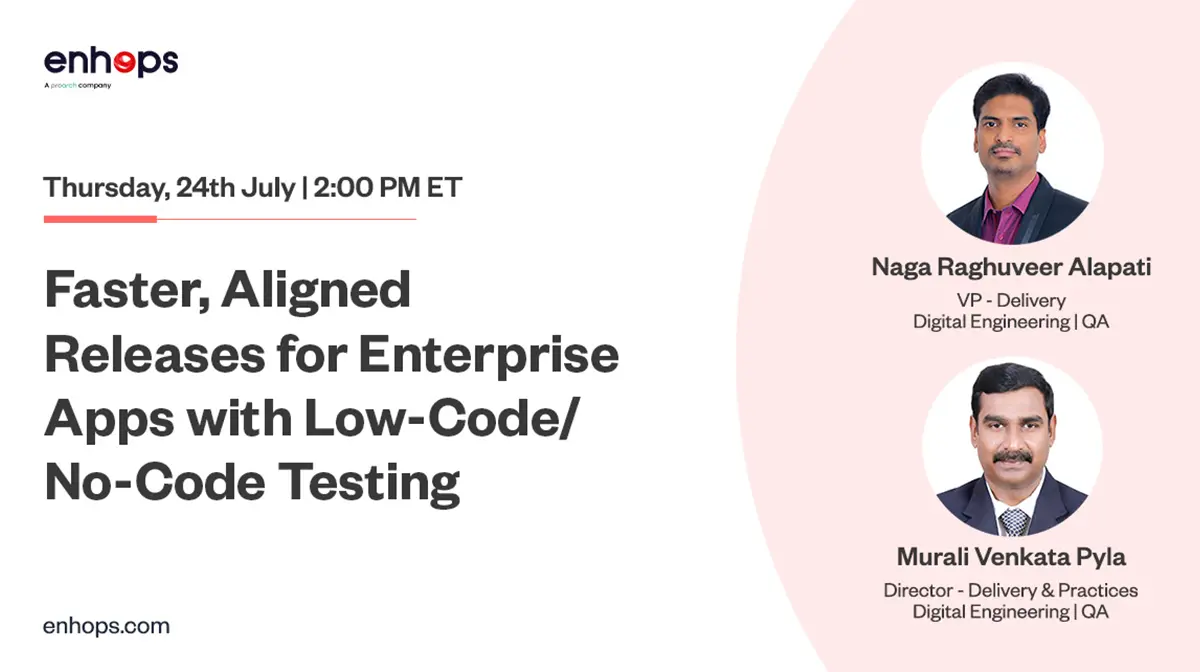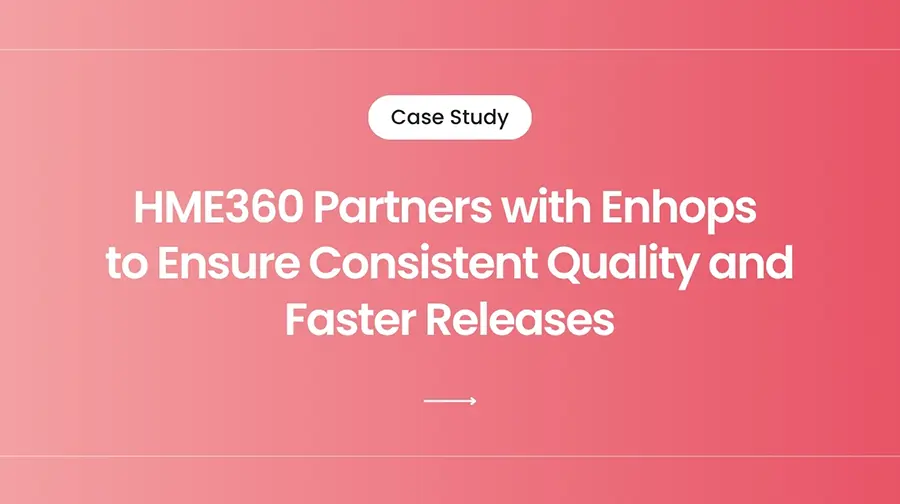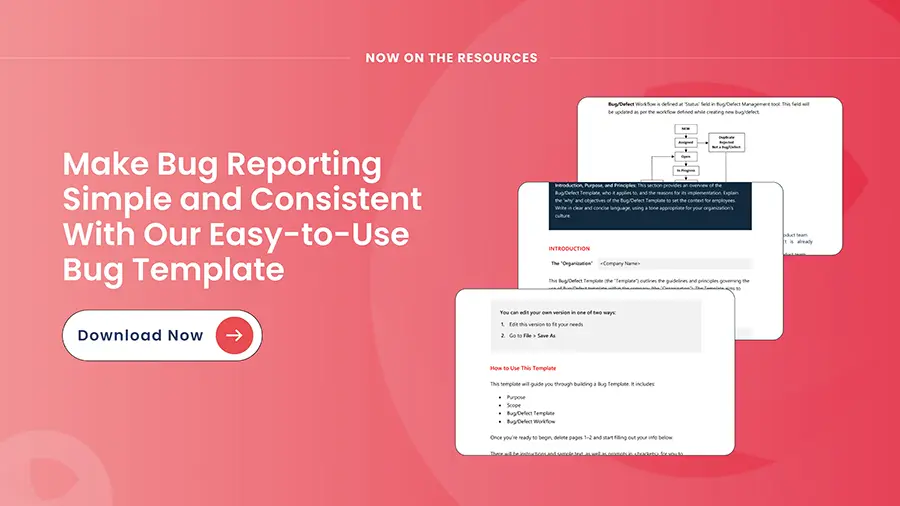In today’s ever-evolving landscape of software development, organizations strive to achieve two critical objectives: delivering high-quality software and accelerating time-to-market. Traditionally, software development teams adopted DevOps to fasten their software releases and balance IT Ops, but testing has become an ‘after-thought’.
As the releases were done faster, testing started becoming the bottleneck because of highly manual nature. However, certain forward-thinking organizations started integrating testing into their software development lifecycle. This practice started giving superior results.
In this post, we are trying to explore how Testing Center of Excellence (TCoE) can integrate into DevOps teams to produce higher-quality software.
Understanding Testing Center of Excellence (TCoE)
A Testing Center of Excellence (TCoE) is a function within an enterprise that is responsible for managing and improving the testing function. It establishes best practices and standards for testing, as well as provide training and support for testing activities throughout the organization. The goal of a TCoE is to improve the efficiency and effectiveness of testing and help teams deliver high-quality products.
A mature TCoE can help in managing a variety of practices like Test Automation, DevOps, DevSecOps, DevTestOps, Agile Testing, Chaos Engineering, Autonomous Testing, AI-ML practices, and more. TCoE delivers proven results by helping organizations improve application quality, performance, operational efficiency, and alignment between IT and business.
It serves as a virtual command center where standardized testing methodologies, best practices, automation, metrics, and tools are employed. The company manages a flexible pool of resources to ensure a high level of quality across all applications, both prior to deployment and while in production. Further, it assists IT managers in making deployment decisions by providing visibility into the quality of software systems and projects.
Word of Caution – A TCoE can be seen as a separate function but it’s very important to integrate their functioning with core engineering team. The right way to do it is involving SDETs in both testing and development practices and let them be the driving force of change. Keep reading to understand how.
Exploring DevOps
DevOps has gained significant popularity; thanks to the benefits it has delivered for enterprises and software development teams. A DevOps approach to operations and deploying software optimizes workflows and facilitates team collaboration. It streamlines processes, delivers new features more frequently, reduces risk, and increases efficiency so organizations can build better software faster. The DevOps methodology addresses two significant functions, Development and Operations however, organizations should also consider other key areas when implementing DevOps.
The key pillars of DevOps are collaboration, automation, governance, and culture. During the collaboration, different departments in an organization interact with one another. As part of DevOps, cross-functional communication is encouraged between development, quality assurance, and operations teams.
Let’s Imagine
Imagine a global enterprise that successfully adopted DevOps and now releases software at lightning speed. Development and operations teams work in sync, automating most build and deployment processes.
But there’s a challenge — manual testers can’t keep up with rapid releases. Quality begins to slip, and management starts to worry about growing defects and customer complaints.
The company invests in automation tools, but without a unified testing strategy, they fail to achieve consistent results. After attending a few industry conferences and evaluating options, leadership decides to set up a TCoE.
This centralized TCoE team builds reusable test frameworks, integrates automation into CI/CD pipelines, and implements quality metrics across all projects. Soon, software quality stabilizes, release cycles speed up further, and the development team can focus on innovation.
Here are some of the benefits of using a TCoE:
- Improved quality of software releases
- Reduced risk of defects
- Frees up development team to focus on innovation
- Increased efficiency and productivity
- Reduced costs
- Improved customer satisfaction
The C-suite is confident that establishing a TCoE will help the company to achieve its business goals.
How TCoE integrates with DevOps
In today’s rapidly evolving business landscape, organizations must embrace agile methodologies and DevOps practices to keep up with digital technology advancements. This enables faster release cycles and promotes collaboration among different teams. The IT environment is becoming increasingly complex with new technologies like cloud computing, mobility, and analytics. Balancing innovation and cost efficiency becomes a challenge in such scenarios.
Traditional software testing has evolved into Quality Engineering and Assurance (QE&A), integrating quality at every stage of the software lifecycle. This eliminates the need for a separate end-phase testing, leading to accelerated time to market and cost savings. QE&A incorporates robust testing frameworks, automation, and continuous integration /deployment pipelines to proactively identify and rectify quality issues. It promotes collaboration among stakeholders and enables early defect detection, comprehensive test coverage, and iterative development for continuous improvement and business agility.
TCoE and DevOps complement each other. TCoE ensures that testing is carried out efficiently and effectively, while DevOps accelerates the delivery of applications through continuous integration and delivery. TCoE acts as a quality gate, ensuring that the software is tested rigorously at every stage of development, while DevOps focuses on the end-to-end delivery of code to production. Together, they form a powerful collaboration that enables teams to deliver quality software at a breakneck pace.
However, due to a lack of understanding of DevOps, TCOEs are often seen as contributors rather than enablers of DevOps. This leads to the creation of independent DevOps innovation centers instead of empowering existing TCOEs.
Whereas in multi-vendor scenarios, where multiple development and QA partners collaborate, it becomes even more critical to enforce DevOps through standard processes and governance. Adding DevOps to QA COE’s portfolio brings benefits like emphasizing quality assurance, integrating BDD frameworks into lean SDLCs, and maintaining metrics for assessing automation levels.
Let’s explore the synergy between TCoE and DevOps and how they complement each other:
- Agile Testing: TCoE aligns with the Agile principles embraced by DevOps. Both approaches emphasize iterative development, continuous feedback, and collaboration among teams. TCoE enables Agile testing by integrating quality practices into each stage of the software development lifecycle, ensuring that testing is performed early and frequently.
- Test Automation and Continuous Testing: TCoE brings expertise in test automation, creating reusable test automation frameworks and leveraging automation tools. When integrated with DevOps practices, test automation can be seamlessly incorporated into development pipeline, enabling continuous testing throughout software delivery process. This ensures early bug detection, faster feedback loops, and improved overall software quality.
- Shift-Left Testing: TCoE encourages the concept of shifting testing activities left in the development lifecycle. By collaborating with DevOps teams, testing can start earlier, such as in the code development phase itself. This allows identification and resolution of defects at an early stage, reducing overall cost and effort required for defect fixing.
- Continuous Integration and Continuous Delivery (CI/CD): DevOps principles advocate for continuous integration and continuous delivery, where software changes are frequently merged, tested, and deployed.
TCoE’s involvement in the CI/CD pipeline ensures that testing processes are seamlessly integrated, providing continuous feedback on software quality. This collaboration guarantees that high-quality releases are delivered faster and more frequently to end-users. - Infrastructure-as-Code (IaC) for Test Environments: Use IaC principles to provision and manage test environments dynamically. TCoEs can collaborate with DevOps teams to define infrastructure requirements as code using tools like Terraform or AWS CloudFormation. This ensures consistent, reproducible test environments across the development and testing lifecycle.
- Containerization and Orchestration: Leverages containerization technologies such as Docker and container orchestration platforms like Kubernetes. TCoEs can collaborate with DevOps teams to containerize test environments and tests, enabling scalability, portability, and faster setup of test infrastructure.
- Metrics and Analytics: TCoE establishes metrics and analytics frameworks to measure and track key performance indicators (KPIs). These metrics provide insights into the efficiency and effectiveness (E2E) of DevOps pipeline. TCoE analyzes the data, identifies bottlenecks, and suggests improvements to optimize the delivery process continually.
- Continuous Improvement: Both TCoE and DevOps emphasize continuous improvement. TCoE enables the collection and analysis of testing metrics, such as defect trends, test coverage, and test execution time. These metrics provide valuable insights for identifying areas of improvement and optimizing the testing process, ultimately contributing to the overall DevOps maturity.
The collaboration between TCoE and DevOps presents a powerful opportunity to revolutionize software quality and delivery. While Agile Transformation teams are typically responsible for managing DevOps roadmaps and adoption, transforming TCOEs into DevOps Innovation Centers is a preferable alternative. This approach focuses on transforming existing teams rather than introducing new ones enabling better utilization of pockets of excellence within organizations.
Embracing this partnership will enable organizations to stay competitive in today’s fast-paced digital era, delivering high-quality software to customers faster than ever before.
Business Impact of Integrating TCoE with DevOps
| Business Outcome | Impact |
|---|---|
| Faster Releases | Automated testing and CI/CD integration speed up delivery cycles |
| Improved Quality | Early and continuous testing ensures fewer defects and stable releases |
| Lower Costs | Centralized automation and test reuse reduce redundancy |
| Higher Efficiency | Streamlined workflows and better collaboration boost productivity |
| Enhanced Visibility | Unified dashboards and KPIs improve decision-making |
| Better Customer Experience | Fewer post-release issues lead to greater satisfaction |
Download our eBook on Testing Center of Excellence to understand how it can elevate your testing function.
Why do you need to partner with Enhops for establishing TCoE?
Setting up a TCoE requires expertise, tools, and a strong understanding of DevOps practices. That’s where Enhops comes in.
Why Enhops?
Extensive Experience: We have a proven track record of successfully completing over 110 automation testing engagements within agreed-upon timeframes and budgets. Our experience ensures a smooth and efficient implementation of TCoE.
Industry Expertise: We have successfully implemented Test Automation CoEs for various clients across BFSI, Logistics, Retail, and Education industries. Our industry-specific knowledge enables them to tailor the TCoE to meet the unique requirements of your organization.
Advanced Automation Test Lab: We boast to own a state-of-the-art automation test lab equipped with wide range of licensed tools from reputed vendors comprising of HP, Microsoft, and IBM, as well as many more open-source tools. This ensures comprehensive test coverage across various technology platforms.
Robust Automation Frameworks: We have a strong expertise in creating and implementing various automation frameworks, including Keyword Driven, Data Driven, Modular, and Hybrid frameworks. These frameworks enhance test efficiency, maintainability, and reusability.
Continuous Integration with Jenkins: We leverage Jenkins, the most popular continuous integration tool for seamlessly integrating your testing process into your DevOps pipeline enabling faster feedback, smoother deployments, and efficient collaboration between your development and testing teams.
In conclusion, partnering with Enhops towards establishing a TCoE, provides you the necessary expertise, experience, and resources to drive automation, collaboration, and continuous testing in your organization. With Enhops’ industry knowledge, advanced test lab, and robust frameworks, you can achieve improved software quality, faster time-to-market, and enhanced customer satisfaction.
Remember, it’s not a choice between TCoE or DevOps; it’s about leveraging their combined potential to unlock new levels of success in software development. So, embrace the power of collaboration, embrace TCoE and DevOps!
Ready to take your collaboration, TCoE, and DevOps to the next level?
Get expert consultation today and unlock the full potential of your software development process!




